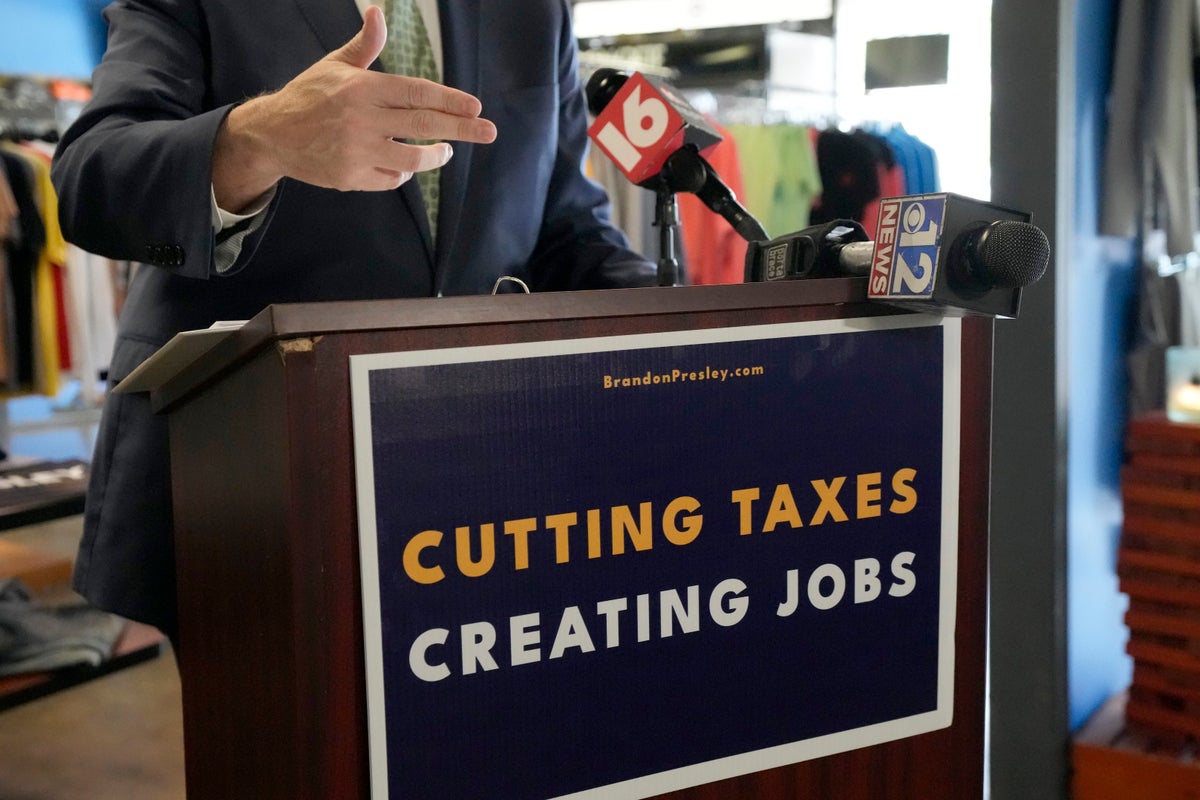No state has put an end to personal income tax since 1980, but Mississippi and Kentucky could change it


About 45 years have passed since the last time an American state has eliminated its income tax on wages and salaries. But with recent actions in Mississippi And the Kentucky, two states are now on the way to do it, if their economies continue to grow.
The zero thrust of the income tax is perhaps the most aggressive example of a trend on cutting the taxes that swept away the states while bouncing from Covid-19 pandemics with increasing revenues and historical surplus.
But it arrives in a period of greater uncertainty for the states, while waiting to see if the president Donald TrumpThe cut and rates of costs lead to a reduction of federal funding for states and a recession in the general economy.
Some tax analysts also warn that the repeal of income taxes could leave the states dependent on other withdrawals, such as sales taxes, which influence disproportionately on the poor.
What governments do they charge income tax?
The sixteenth amendment to the Constitution of the United States grants Congress the power to collect income taxes. It was ratified by States in 1913. Since then, most states have adopted their income taxes.
Eight states currently do not charge any personal income tax: Below. Florida, New HampshireNevada, South Dakota, TennesseeTexas and Wyoming. A ninth state, Washington, does not charge any personal income tax on wages and salaries, but tax certain capital gains over $ 270,000.
When Alaska repeatedly repealed his personal income tax in 1980, he did it because the state coffers were overflowing with billion dollars in oil money.
Although the eliminations of income tax have been proposed elsewhere, they have not been successful.
“It is much easier to go without an individual income tax if you have never met one,” said Katherine Loughead, senior analyst and research manager at the non -profit fiscal foundation. “But once you become dependent on these revenue, it is much more difficult to eliminate or eliminate this tax.”
What is Mississippi doing?
The republican governor of Mississippi Tate Reeves recently signed a law by gradually reducing the rate of state income tax from 4% to 3% by 2030 and establishing Benchmark of state revenue growth that could trigger further incremental cuts until the tax is eliminated. The law also reduces the sales tax on shopping and increases gasoline tax.
If the reserves in cash are entirely financed and every year the revenue triggers are satisfied, the Mississippi income tax may have disappeared by 2040.
Supporters of a repeal of income tax hope that both companies and residents will attract, elevating the state economy to artists of the caliber of Florida, Tennessee and Texas. Their theory is that when people pay less in income taxes, they will have more money to spend, thus increasing the collection of sales taxes.
The repeal of taxes “puts us in a rare class of elite and competitive states,” said Reeves in a note. He added: “Mississippi has the potential to be a magnet for the opportunity, for investments, for talents- and for families who try to build a better life”.
Mississippi is among the most impoverished states and is strongly based on federal funding. Democratic legislators have warned that the state could face a financial crisis if the cuts to federal funding arrive simultaneously with the reductions in state income taxes.
The income tax provides “a huge percentage of what the state brings to finance things such as schools and health care and services on which everyone relyings”, said Neva Butkus, senior analyst at the non -profit institution for tax and economic policy.
What did Kentucky do?
A 2022 Kentucky law reduced the rate of state income tax and has set a series of entrance -based trigger that could gradually lower the tax to zero. But unlike Mississippi, the triggers are not automatic. Rather, the Kentucky General Assembly must approve any further reduction in the tax rate.
This has led to a series of tax reduction measures, including two new laws this year. The subsequent reduction of the tax rate is implemented from 4% to 3.5% starting from 2026. The second makes it easier to continue to reduce the tax rate in the future allowing smaller increases if the growth of revenues is not enough to trigger a reduction in 0.5 percentage points.
Democratic governor Andy Beshear has signed the legislation for cutting the taxes of next year, but he let the other measure approved by the legislature led by the Republicans became law without his signature. Beshear called him a “esca-e-e-switch” invoice, the contending legislators had ensured that the guardrails for the reductions in income tax would remain on the spot while pushing for the cutting of the taxes of 2026, so further on in the session he changed the triggers for the future years.
What actions have taken other states?
New Hampshire and Tennessee had not already taxed income from wages and salaries, but both states had taxed some types of income.
In 2021, Tennessee ended an income tax for interest from bonds and equity dividends that had been collected since 1929.
New Hampshire stopped his tax on interest and dividends at the beginning of this year.
Some other states are also pushing to repeal the income taxes that the Oklahoma Chamber has approved the legislation in March which would gradually reduce the rate of the personal income tax to zero if the revenue growth benchmark are satisfied. That bill is now in the Senate.
The new Governor of Missouri Mike Kehoe, a republican, also wants to gradually eliminate income tax. The Chamber and the Senate have advanced legislation that would take an incremental step by exempting the income of capital gains from taxes.




